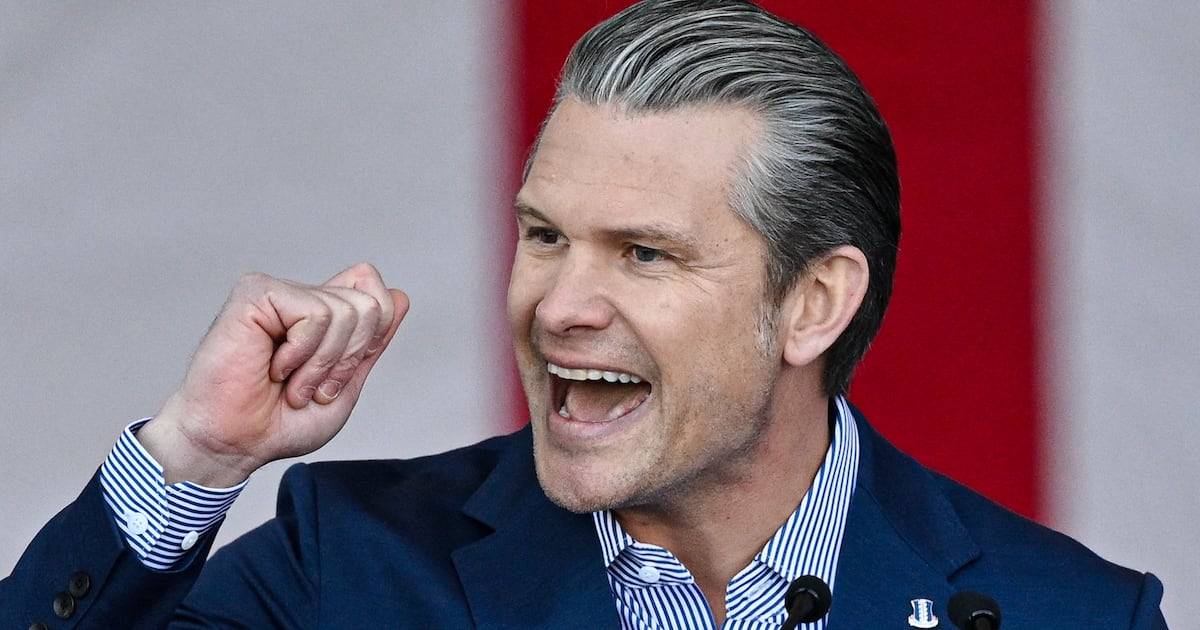Following a successful convention for Hillary Clinton and the Democrats, which included many members of the Democratic establishment celebrating the campaign of Bernie Sanders, you’d be surprised to learn that Tim Kaine—yes, that “aw-shucks” guy from Virginia with the bad Trump impression—has become the new source of contention between Sanders supporters and the DNC.
Leading up to the convention, most of the talk between Sanders people and the DNC revolved around their dislike of Debbie Wasserman Schultz and the leaked DNC emails, but these issues essentially solved themselves via Wasserman Schultz’s resignation, and the revelation that Russia most likely was responsible for the leak. Donald Trump’s additional encouragement for Russia to hack into more Clinton emails showed that the likely alternative to a Hillary presidency would be an unstable, bigoted, and quasi-treasonous fear monger, and this only further solidified the importance of the #NeverTrump/#ImWithHer movement.
Segments of Sanders’s supporters have never warmed to the idea of Kaine being Clinton’s running mate. To them, Kaine is an establishment, moderate Democrat, and therefore his choice represents a rejection by Clinton of their progressive ideals and the revolution they intend to foment. Kaine’s support for the Trans-Pacific Partnership and his unorthodox position on abortion (personally against abortion but supportive of law) has also drawn the ire of Sanders supporters.
All that, one can kind of understand. But here’s where it gets weird. Sanders’s supporters appear totally uninterested in both Kaine’s celebrated civil rights record as a public servant and as an attorney, and his documented liberal track record. In 2014, Kaine scored a respectable 90 percent (PDF) on the liberal Americans for Democratic Action rating, which was not far behind Sanders’s 95 percent.
So he is far from a moderate in general terms. But it’s on race that Kaine has been a genuine leader and taken real chances. In the 1980s after graduating from Harvard Law, Kaine was at the forefront of combating discriminatory housing practices in Virginia, and he’s been a staunch defender of the Voting Rights Act, which enfranchised African Americans in his state and across the South. In light of the discriminatory voting practices being implemented in many states, and in light of, well, Donald Trump, Kaine’s ideals are desperately needed, yet some Sanders supporters prefer to overlook these progressive credentials, while wondering why they lost the black vote to Clinton.
Why do the Sanders people get to decide that taking on the big banks and opposing trade agreements count as more “progressive” than what Kaine has done on civil rights? There is also an irony in some Sanders supporters’ disregard for Kaine’s track record because earlier in the campaign, Sanders’s camp became frustrated that Sanders’s history of civil rights advocacy failed to resonate with African American voters. It was illogical for his long and documented track record to be ignored and derided, they argued then. Yet now they are doing what they once bemoaned. And the truth is that while Bernie did get arrested during a protest when he was a student at the University of Chicago, and has championed civil liberties from the safe, homogenous confines of Vermont, Kaine has chosen to place himself far more directly on the front lines of racial battles in the heavily African American, and racially confrontational capital of the old Confederacy. (Sanders inveighs against the banks, by the way, from the safety of a state that doesn’t have any.)
In the Bernie people’s eyes, some of Kaine’s recent positions could have been more progressive, and this equates to Clinton and the DNC thumbing their nose at Sanders’s progressive revolution.
“It’s a form of Hillary Clinton saying to the Bernie Sanders constituency, ‘Screw you,’ because we think we have enough of you,” said Norman Solomon, the Marin County, California-based leader of an informal group of Sanders delegates known as the Bernie Delegates Network, to Politico.
Solomon’s criticism speaks to the central divide between the Clinton and Sanders camp: Clinton is trying to win an election and Sanders is trying to launch a revolution. And to a small segment of supporters the progress of the revolution is not necessarily contingent on a Clinton victory.
The contempt some Sanders supporters display toward Kaine (and, of course, Clinton) reflects their overestimation of the impact of their revolution—and, importantly, a neglect of the other “revolutions” happening at the same time within the Democratic electorate, and this is a trait that has remained throughout his campaign.
The Black Lives Matter movement has energized and mobilized African-American voters across the nation, and has made criminal justice, race relations, and inequality a vital issue in the eyes of black voters. The rapid growth of the Latino population has also changed the face of Democratic politics. Blacks and Latinos will make up over a quarter of the electorate in many swing states and could potentially decide this election. Additionally, Trump’s demonization of minorities including blacks, Mexicans, and Muslims has further mobilized these communities and required that the Democrats demonstrate how they truly have evolved into an inclusive, equity-focused multicultural party that can adequately address the vital issues of these interconnected communities.
Despite the importance of Sanders’s revolution, it is only one within a sea of seismic revolutions/movements that are reshaping the Democratic Party and American politics. The hubris displayed by some Sanders supporters to feel untowardly aggrieved by the selection of Kaine not only shows how out of touch they are with the rapidly changing face of American politics, but also the necessity to defeat Trump.
Kaine’s selection has caught many people off guard because most Americans do not know him. Kaine will have to prove that he is up to the task nationally. He’s going to have to prove his bona fides to many segments of the Democratic electorate. His fluency in Spanish may help with Clinton’s outreach to the Latino community, but that is far from guaranteed.
However, choosing Kaine virtually guarantees winning Virginia, which voted twice for George W. Bush, and gives Trump a narrower path to victory. Experts speculate that Trump may need to sweep Florida, Ohio, Pennsylvania, and North Carolina to have a chance of winning, and Kaine’s moderate appeal and civil rights record will help win voters in Ohio, North Carolina, and Pennsylvania. A progressive, Sanders-approved VP would not bring in voters that Sanders could not attract himself, and probably would not help much in these vital states. Remember that Clinton beat Sanders in all of them, and by double digits in all four.
These disgruntled Sanders supporters need to recognize that their revolution is not more important than the other revolutions consuming the Democratic Party and it certainly is not more important than defeating Trump in November. Their revolution will be in much better shape under a Clinton presidency than a Trump one. Sparking division, and using Kaine as an outlet for their frustrations forged from unrealistic expectations, will help no one, and only undermine their credibility.
Revolutions do not have deadlines or due dates, but elections do. If they care about their revolution they should devote their energy over the next 100 days to helping Clinton—and Kaine, who is plenty progressive, just not in their preferred ways—win.






